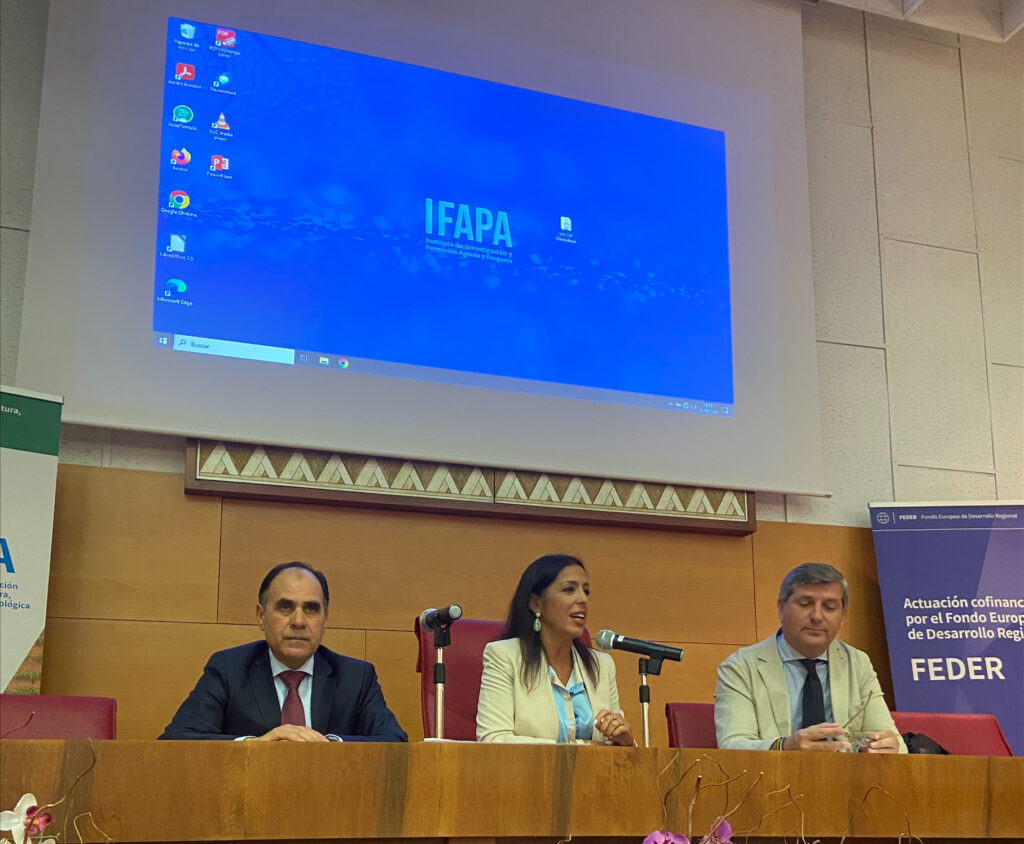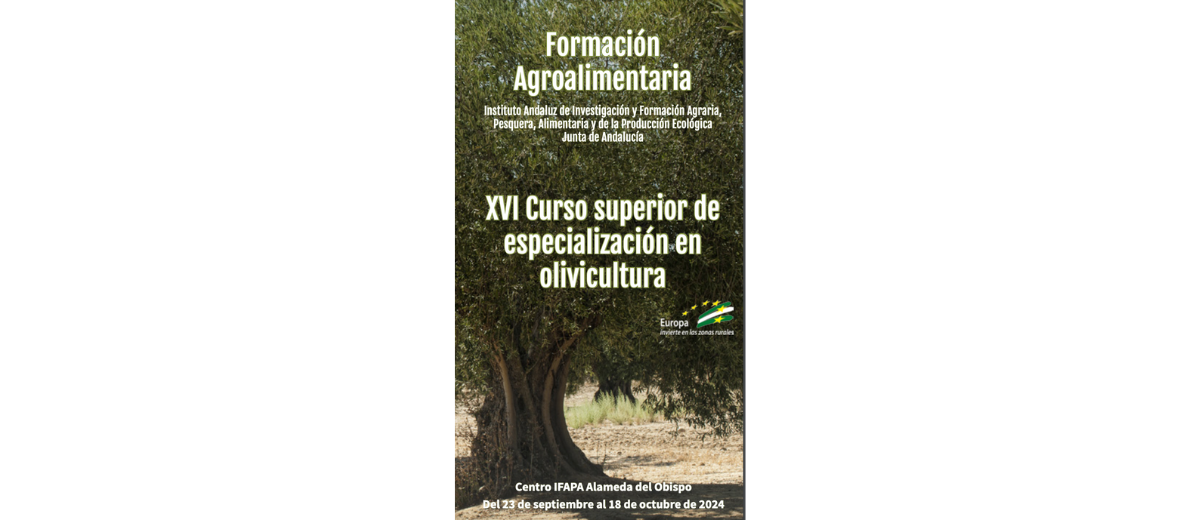XVI Advanced Course in Olive Cultivation
The Advanced Course in Olive Cultivation is now on its sixteenth edition. The course, organised by the Andalusian Institute of Agricultural, Fisheries, Food, and Sustainable Production (IFAPA by its Spanish acronym), runs from 23 September to 18 October at IFAPA’s headquarters in Cordoba (Spain). It seeks to improve the qualifications of olive sector professionals by discussing scientific foundations and advanced cultivation techniques, while serving as a forum for the exchange of information and experiences among participants, as well as the promotion of scientific and technical cooperation.
 IOC Deputy Executive Director for Operational Affairs, Abderraouf Laajimi, gave the inaugural lecture on the status of global olive cultivation on Monday 23 September at IFAPA’s headquarters. He highlighted the impact of recent climatic conditions in the Mediterranean, particularly in the Iberian Peninsula, which led to two unprecedented production declines and a surge in prices, slowing global olive oil consumption. This demonstrates that climate change is a major challenge for the sector. However, olive groves can act as a significant carbon sink, capturing CO2 and storing it in a stable manner. Additionally, producing high-quality olive oil remains a priority due to its health benefits. In this line of thought, he recalled that the IOC aims to support global olive oil trade by ensuring quality and safety, contributing to better health for consumers and the planet.
IOC Deputy Executive Director for Operational Affairs, Abderraouf Laajimi, gave the inaugural lecture on the status of global olive cultivation on Monday 23 September at IFAPA’s headquarters. He highlighted the impact of recent climatic conditions in the Mediterranean, particularly in the Iberian Peninsula, which led to two unprecedented production declines and a surge in prices, slowing global olive oil consumption. This demonstrates that climate change is a major challenge for the sector. However, olive groves can act as a significant carbon sink, capturing CO2 and storing it in a stable manner. Additionally, producing high-quality olive oil remains a priority due to its health benefits. In this line of thought, he recalled that the IOC aims to support global olive oil trade by ensuring quality and safety, contributing to better health for consumers and the planet.
The Advanced Course in Olive Cultivation is aimed at twenty-five professionals from the olive sector with experience in technical or managerial positions, as well as university graduates with an interest in the olive sector. Over the course of four weeks, the students will touch on a variety of topics, ranging from genetic improvement programmes and soil management systems to the utilization of by-products and the use of diverse machineries for harvesting.
Click here to read the course programme.









